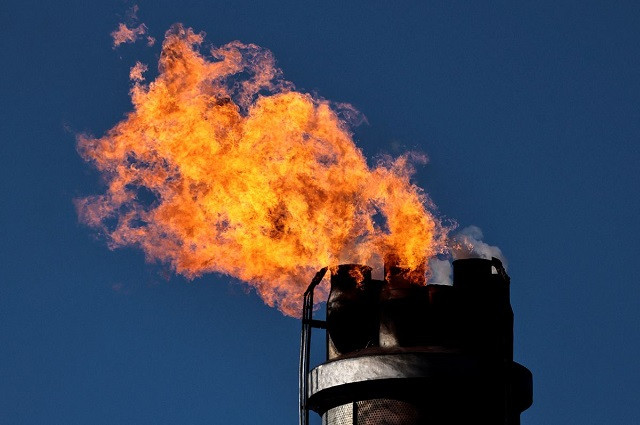
Oil refineries have warned that they will shut down plants in the absence of a new refinery policy as they are suffering huge losses from furnace oil exports.
Smuggled Iranian oil has pushed down demand for the locally produced petroleum products and oil marketing companies (OMCs) are hesitant to lift the stocks at refineries.
Compelled by thin demand, the refineries are running below their production capacity and have even started exporting fuel oil at a huge loss in an attempt to continue operating the plants.
They have also taken up the matter of smuggled petroleum products with the federal government but a remedy is still awaited.
Two refineries, Pak Arab Refinery Limited (Parco) and Pakistan Refinery Limited (PRL), are exporting furnace oil but, according to sources, they are incurring a loss of Rs30,000 per tonne.
So far, Parco has exported 150,000 tonnes whereas PRL has shipped 50,000 tonnes. Parco and PRL are going to export another 50,000 tonnes and 15,000 tonnes respectively.
Sources pointed out that the refineries had been able to sustain operations as their margins were relatively higher at the beginning of current year. However, the margins now stand low and profits will turn negative if the current situation persists.
Refineries are pinning their hopes on the approval of a new refinery policy that promises some incentives for upgrading the plants. A draft policy came up for discussion in the last meeting of the Cabinet Committee on Energy (CCOE).
It approved incentives for setting up new refineries but constituted a committee for evaluating the deemed duty collection and its spending by the refineries. It also asked for details of diesel and petrol production.
Sources revealed that the representatives of refineries were invited to participate in the meeting of the committee formed by the CCOE. During the huddle, they warned that the refineries would shut down if the situation did not change, especially the huge supply of smuggled Iranian oil.
They said that the refineries were exporting fuel oil at a huge loss, adding that the legal business in Pakistan was going to become unviable owing to a massive drop in sales of petroleum products.
Now, according to sources, the Petroleum Division is going to send a summary again to the CCOE for the approval of refinery policy.
The committee was informed that the CCOE had already resolved the issue of deemed duty collection and its spending during the previous government’s tenure.
At that time, the cabinet body asked similar questions, such as the amount of deemed duty collected by the oil refineries and the investment made in project upgrades, and sought a report from the Petroleum Division.
Refineries had collected Rs200 billion in deemed duty and invested the amount in upgrading their projects.
In response to the CCOE’s observations in a meeting held on August 20, 2021, the Petroleum Division recalled that deemed duty (tariff protection) was introduced after the abolition of the guaranteed return formula (10-40%) in 2002.
The purpose of deemed duty was to enable the refineries to operate on a self-financing basis by offsetting losses and expanding/ upgrading.
A 10% tariff protection had been introduced for diesel and 6% for JP-4, kerosene oil and light diesel oil.
Published in The Express Tribune, May 19th, 2023.
Like Business on Facebook, follow @TribuneBiz on Twitter to stay informed and join in the conversation.






1719053250-0/BeFunky-collage-(5)1719053250-0-270x192.webp)











COMMENTS (3)
Comments are moderated and generally will be posted if they are on-topic and not abusive.
For more information, please see our Comments FAQ